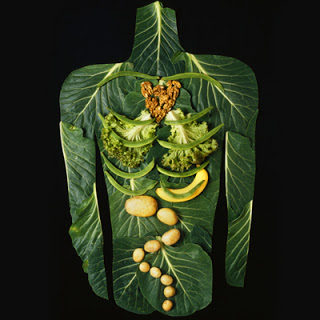Last week I posted the lovely Juli Novotny’s letter where she discussed her initial discovery of raw food. Thank you for all your emails and comments. A handful of clients came into their sessions asking, so if I want to feel like she did do I need to go raw? This reminded me of another, more in depth, email I had received a few weeks back.
Are there foods that I am getting no nutrients from because I cook them? How do I know how many nutrients I am losing and which ones? Are they the ones I care most about?
As always, I look forward to hearing what you have to say!!
I’ve been in book writing induced hibernation so I had our fantastic newish nutrition nerd Carla Vass tackle this. Here are her answers to my questions.
Let’s start with the case for cooked. Which foods are more beneficial when cooked?
Yes, tomatoes for sure. The antioxidant content of tomatoes significantly increases when cooked. Lycopene, in tomatoes, has been singled out as important for prostate health but lycopene is a very powerful anti-cancer weapon in general. It is 10 times as effective as vitamin E at wiping out free radicals which can affect our cancer risk. Tomato sauce, tomatoes cooked in chili and soups are important in a healthy diet. Additionally, cooked carrots, spinach, mushrooms, asparagus, cabbage and peppers also supply more antioxidants, such as carotenoids and ferulic acid, cooked than they do when raw.
There is also the question of digestibility. Have you tried uncooked squash? The sturdy cell wall is difficult to digest without heating first. Dried beans need cooking. Other beans need heat to kill certain compounds. Lima beans contain the poison cyanide, which is released harmlessly as a gas during cooking.
And all cooking methods are probably not created equal, what’s best and worst?
Yes, steaming was the most successful method of retaining the vitamin content of food. Stir-frying and pressure-cooking also proved to be good methods of cooking. We expected boiling but deep drying is the worst (for this and other reasons). We also received a Vitamix question; vitamixers do not worry contents do not get hot enough to destroy enzymes or nutrients.
And the reasons for raw, which foods are most important to eat raw?
The nutrient most affected by cooking is Vitamin C. The cooked tomatoes we discussed above as potent anti-cancer weapons? Well almost 30% of the Vitamin C will be lost in half an hour of cooking. That Mr Vitamin C is very unstable but is also much needed for immunity, wound healing and assistance absorbing iron.
It’s probably a good idea for everyone to eat some raw leafy greens and high “C” fruits each day (papaya, kiwi, oranges, strawberries). Vitamin C, aside what are the other reasons for raw?
Advocates point out that people ate raw fruits, vegetables, nuts, and seeds long before they learned to cook. They say that a return to this original diet increases energy, strengthens immunity to disease, and improves mental health.
While I’m all for less processed I hate this type of argument about what people used to do. People used to not wear seatbelts and eat poisonous berries too-whoops. Can’t use chronology as a method for determining what’s best in all cases. Thanks Carla, good information.
I’ve done weeks here and there of raw food and it feels great. Part of the reason it feels great is that you’re eating very nutritious foods but part of it is also what you’re eating less of: fewer grains, no dairy and less salt too. I try to have 1 juice or green smoothie and 1 dark/leafy green or microgreen salad per day. Especially in the winter, I find warm food very satisfying.
As much as I hate answers that start with “it depends” or sound like hedging in the case of raw versus cooked it does depend. In terms of vegetables, try to eat some raw and some cooked each day and watch out for those lima beans (who knew?).
Have you dabbled in raw food? Thought about nutrients lost in cooking? What would you say your percentage of raw versus cooked is in your diet?
As much as I hate answers that start with “it depends” or sound like hedging in the case of raw versus cooked it does depend. In terms of vegetables, try to eat some raw and some cooked each day and watch out for those lima beans (who knew?).
Have you dabbled in raw food? Thought about nutrients lost in cooking? What would you say your percentage of raw versus cooked is in your diet?


